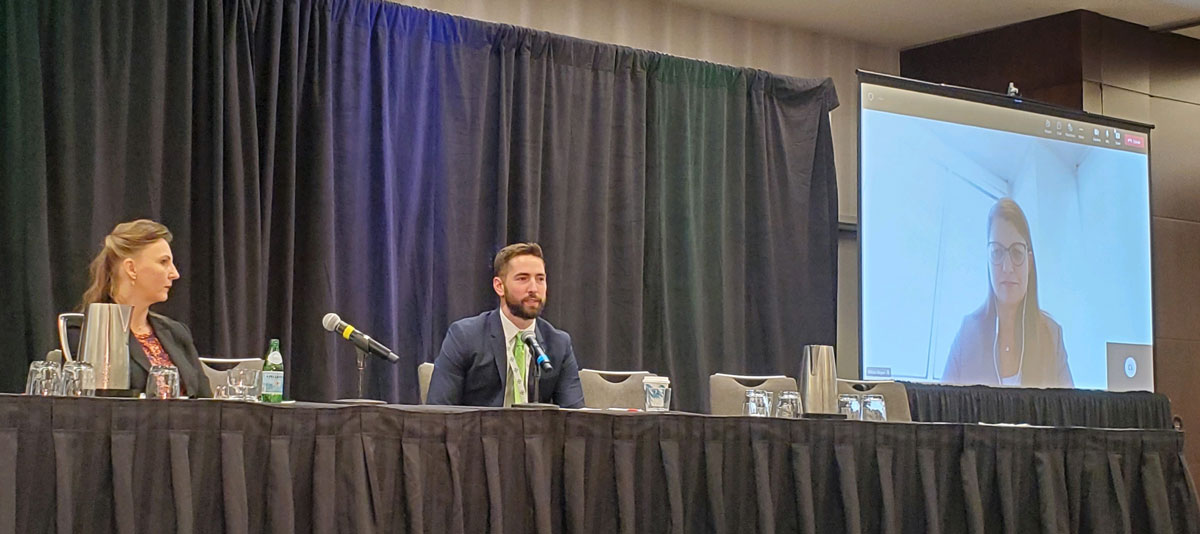 USA Rice's Peter Bachmann (center) sets the record straight on MRLs for ag commodities headed to the EU
USA Rice's Peter Bachmann (center) sets the record straight on MRLs for ag commodities headed to the EU
Apr 22, 2022
WASHINGTON, DC – Earlier today, USA Rice participated in CropLife America, RISE, and the Council of Producers and Distributors of Agrotechnology’s 2022 Regulatory Conference. The annual conference brings together hundreds of crop input industry professionals and government regulators to discuss everything from the pesticide registration process to environmental impact assessments for crop inputs.
Peter Bachmann, USA Rice vice president of international trade policy, spoke on a panel discussing the European Union and Maximum Residue Level (MRL) Challenges. USA Rice was representative of the grower sector and other panelists included a U.S. Department of Agriculture Foreign Agricultural Service MRL expert and a Brussels-based CropLife International employee to represent the chemical registrant perspective.
The panel focused on concerns around Europe’s implementation of MRLs on agricultural commodities because the European Commission is notorious for setting levels based on public consensus over risk.
For example, propiconazole, a compound found in crop inputs for rice and other crops and determined to have low risk to human health by researchers across the world was completely banned last fall by the European Commission.
“Despite the focus on Europe, the problems we’re seeing and the impacts on U.S. farmers have spread into many other markets, making this a critical priority for our industry,” said Bachmann. “As markets set unjustified and unattainable MRLs as non-tariff barriers, we will need to invest more in building reliance on agnostic, international institutions like the Codex Commission.”
Codex Alimentarius is the United Nations organization within the Food and Agriculture Organization that is responsible for setting international food standards, including MRLs, using peer reviewed residue data and other research.
“Not only do we need the help of Codex to keep up with these new challenges in the marketplace, but we also need more help from chemical registrants that register, manufacture, and sell the crop inputs to our farmers,” Bachmann explained. “Our industries are mutually dependent, and continued market access means continued need for crop inputs."
USA Rice is currently working with a number of chemical registrants to support the application for import tolerances overseas and proactively working to set new Codex MRLs for rice.